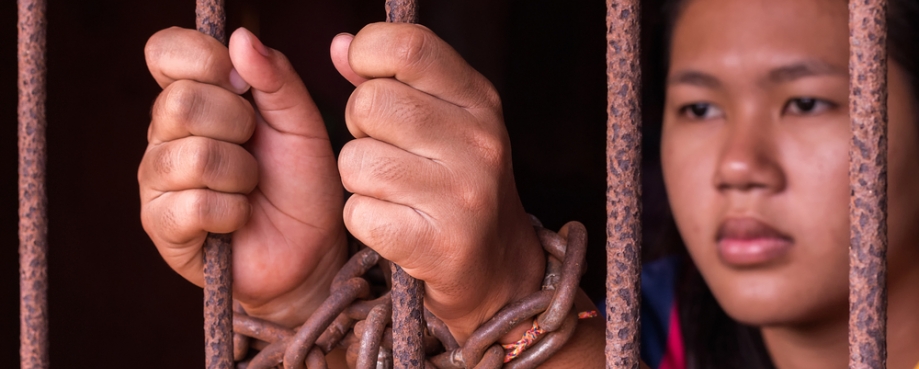
Half of the world’s slavery victims are estimated to live across the Commonwealth, writes Cindy Berman, even though member governments are committed to upholding human rights. It’s why, she says, all Commonwealth leaders must take “demonstrable action”.
The Commonwealth Heads of Government are meeting in London this week. Amongst the many global challenges which they are discussing is ending modern slavery.
The UK is hosting the event, and the Prime Minister has made eradicating modern slavery a personal crusade. At the UN General Assembly last year, Theresa May issued a Call to Action to End Forced Labour, Modern Slavery and Trafficking. It aimed to strengthen the commitment made by all countries to meet the UN Sustainable Development Goal 8.7.
However, so far, only 11 Commonwealth governments have endorsed this call, and only three Commonwealth countries have ratified the 2014 ILO Protocol to the Forced Labour Convention, which also aims to give new impetus to the global fight against all forms of forced labour.
That’s disappointing. The Commonwealth is a club of 53 countries, which is home to over 2.4 billion people. It is united by a set of shared values including democracy, freedom of speech, human rights and the rule of law – enshrined in the Commonwealth Charter.
No country is exempt from modern slavery
As the statistics show, no country is exempt from the risks and incidence of modern slavery. Yet, it thrives in countries where governments fail to protect children, women and men from discrimination, exploitation and abuse, and allow businesses – however unscrupulous – to operate with impunity.
All countries are bound by international law to make forced and child labour illegal.
But we should expect more of Commonwealth countries. They have subscribed to a model of democratic governance that must not only look like they take human rights seriously, but that translates their commitments into demonstrable action.
Signing up to the Call to Action and ratifying the ILO Protocol gives them the opportunity to do this. The Protocol makes additional provisions to enable victims of modern slavery to get access to remedy; and a mechanism by which to hold to account those responsible for fundamental and egregious labour rights violations.
A political, economic and social imperative
Tackling modern slavery is no longer merely a human rights issue. It is a political, economic and social imperative.
Responsible businesses in the UK and elsewhere are increasingly calling on governments to create a level playing field, to protect and enforce labour rights. ETI’s corporate members, for example, were the strongest advocates of Clause 54 of the UK Modern Slavery Act 2015.
This provision requires companies with an annual turnover of £36m to make a public statement setting out all the steps they are taking to ensure that modern slavery is not taking place in their supply chains. This legislation, whilst it has not yet achieved full compliance and is not perfect, has been an important driver to make companies take this issue seriously.
Workers who are subject to appalling exploitation and abuse on a daily basis need more than platitudes from governments, they need action.
Commonwealth Human Rights Initiative
Last week, I attended the launch of the Commonwealth Human Rights Initiative’s first Report on SDG 8.7 ahead of Commonwealth Heads of Government meeting. It highlighted that half of the world’s slavery victims are estimated to live across the Commonwealth.
While 80% of Commonwealth nations have criminalised human trafficking, at least half have penalties that are either too lenient – in terms of fines and jail sentences – or inhumane, such as capital punishment.
Commonwealth countries should recognise the urgent need to ratify the ILO protocol. This would be an important step forward and show leadership.
If they don’t, civil society, responsible businesses and trade unions must put pressure on Commonwealth governments to do this.
Let’s ensure they do.
